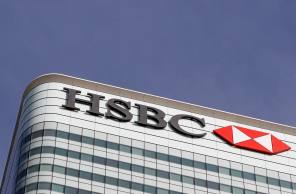

John Flint has resigned as group chief executive of HSBC after the bank’s board said it needed a change to meet the "increasingly complex and challenging global environment" it faced.
In an update published to the London stock exchange this morning (August 5), HSBC announced Mr Flint, who has been chief executive of the group since February 2018 and an employee at the bank since 1989, will also step down as a director and cease his day-to-day duties from today.
Noel Quinn, chief executive of HSBC’s global commercial banking arm, has been appointed as interim group chief executive during the search period for the new boss.
Mark Tucker, group chairman of HSBC, said: “On behalf of the board, I would like to thank Mr Flint for his personal commitment, dedication and the significant contribution that he has made over his long career at the bank.
“HSBC is in a strong position to deliver on its strategy. In the increasingly complex and challenging global environment in which the bank operates, the board believes a change is needed to meet the challenges that we face and to capture the very significant opportunities before us.”
Mr Flint said it had been a privilege to spend his entire career with HSBC and that he was grateful to his colleagues for their support during his career.
He added: “I have agreed with the board that today’s good interim results indicate that this is the right time for change, both for me and the bank.
“After almost 30 years with HSBC, I will be sad to leave but I do so looking forward to a new personal challenge, and confident that our people will continue to serve the bank’s stakeholders in the best possible way.”
The announcement comes as HSBC reported a rise of 15.8 per cent in profit before tax since the end of last year — up to $12.4bn (£10.24bn) — and its reported revenue increased 7.6 per cent.
The results also showed its net interest margin had narrowed by five basis percentage points to 1.61 over the same period but its earnings per share increased from 0.36 at the end of 2018 to 0.42 measured at the end of June.
The bank stated its outlook had changed as interest rates in the US dollar bloc were now expected to fall rather than rise, and noted that geopolitical issues could impact a significant number of HSBC’s major markets.
It stated the uncertain nature and impact of the UK’s departure from the EU coupled with the outlook for interest rates and revenue in its global banking and retail and wealth management arm meant it did not expect to reach its return on equity target by 2020.
imogen.tew@ft.com
What do you think about the issues raised by this story? Email us on fa.letters@ft.com to let us know.



